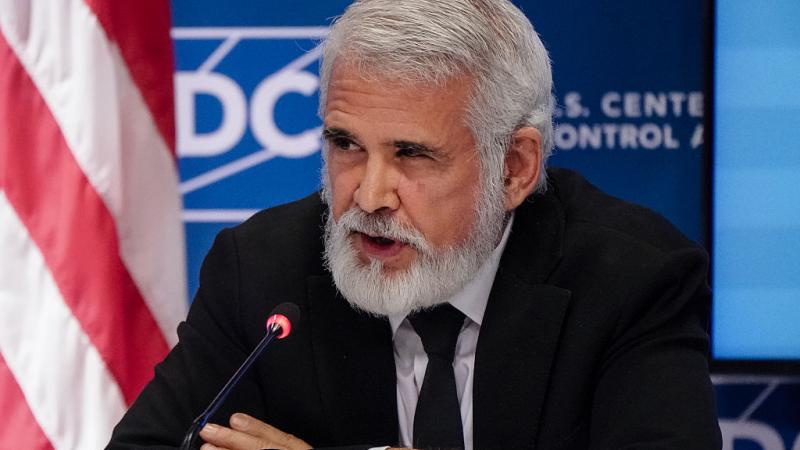'Deplatforming works,' AOC declares after Fox axes Carlson, but studies find tactic self-defeating
A new peer-reviewed study concludes deplatforming frequently backfires, breeding deep-seated resentment, driving those banished to seek out "alternative platforms where these discussions are less regulated and often more extreme."
Soon after Tucker Carlson was ousted from Fox News, Rep. Alexandria Ocasio-Cortez (D-N.Y.) celebrated on social media, telling her followers, "Deplatforming works and it is important."
But while "banning an individual or group may feel cathartic," as one expert put it, a growing body of research has found that deplatforming is a blunt and often self-defeating tool.
Indeed, according to a new peer-reviewed study, deplatforming actually appears to make things many times worse.
Published in The Journal of Quantitative Description, the study, carried out by four cyber experts, warns that deplatforming regularly backfires because it breeds deep-seated resentment, driving those banished to seek out "alternative platforms where these discussions are less regulated and often more extreme."
The researchers examined changes in social media usage following the "Great Deplatforming" of 2021, when, shortly after the Jan. 6 swarming of the U.S. Capitol, a number of major platforms, including Facebook, Instagram and Twitter, banned thousands of users. The deplatforming of these users was ostensibly intended to "limit misinformation about voter fraud and suppress calls for violence," according to the researchers. Many of those deplatformed, however, simply migrated to different, less regulated platforms, including the likes of Parler and BitChute. In this age of maximum choice, note the authors, deplatforming is a largely ineffective tool.
One of the study's authors, Martin Innes, a professor of crime, intelligence and security at Cardiff University, told Just The News that deplatforming has "complex effects," many of which are unintended and frequently end up boosting the popularity of the target.
Moreover, he added, deplatforming can actually "increase the toxicity of discourse." In short, deplatforming simply displaces the problem; it doesn't actually solve it.
Deplatforming is a very poor "tool for reducing the impact of malign actors on the public," Innes and his fellow authors conclude in the paper.
The findings of this paper echo the findings of other similar papers. Shortly after the storming of the Capitol, for example, Innes participated in another study that focused on the effectiveness (or lack thereof) of deplatforming. In that study, Innes and his coauthor coined the term 'minion accounts' to describe how, immediately after a "de-platforming intervention," a number of auxiliary accounts are established to continue the initial "mission."
Deplatforming is an ineffective tool that tends to create greater divisions and higher levels of resentment, concluded a study of deplatforming on Parler published in March in PNAS Nexus, a scientific journal affiliated with the National Academy of Sciences. "Deplatformed users often migrate to alternative platforms, which raises concerns about the effectiveness of deplatforming," wrote the authors.
Counterterrorism expert Ryan Greer previously outlined the many ways in which deplatforming backfires. When major social media platforms deplatformed suspected jihadists, for example, the banished turned to Telegram. This move drove "their online communications underground to a less-visible and less-regulated platform," Greer noted in a 2020 article for the Global Network on Extremism and Technology (GNET), a research project affiliated with the Department of War Studies at King's College London.
"Similar platform migration," he added, "has led to extremist use of VK, the Russian Facebook-equivalent," as well as Gab, a "Twitter-equivalent" favored by "far right-extremists," according to Greer.
He concludes that "grievances that fuel far-right extremism may be heightened in users that are banned from mainstream platforms, and that those grievances are then expressed in fora with less oversight and a higher portion of like-minded members."
Many commentators are quick to argue that deplatforming works, that it benefits broader society. However, as Innes and his coauthors note, deplatforming is, first and foremost, a form of social control. Deplatforming is a tool designed to amplify certain narratives and silence opposing views, which helps explain why AOC, a politician with a controversial set of beliefs, appears to be such a fan of the divisive practice.
As for Tucker Carlson, Joe Rogan, one of the Internet's most notable names, recently suggested that the ex-Fox host should move to the increasingly popular Rumble, an online video platform committed to free speech.
Will Carlson take his advice? Only time will tell, but, if growing expert consensus is correct, Carlson's deplatforming from Fox will not succeed in silencing his voice.
















